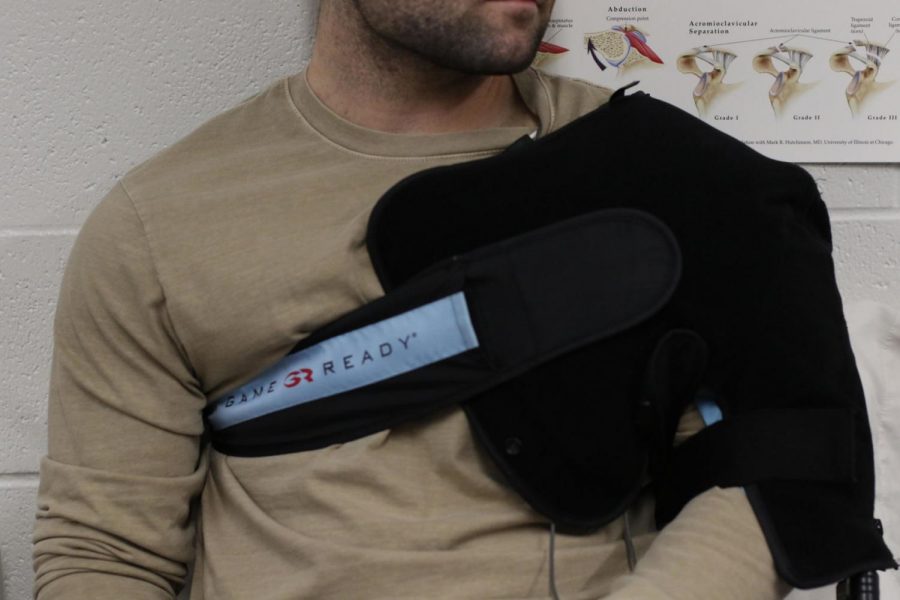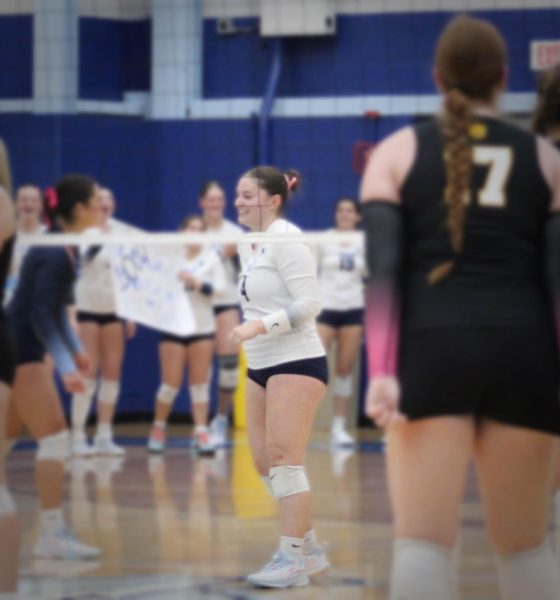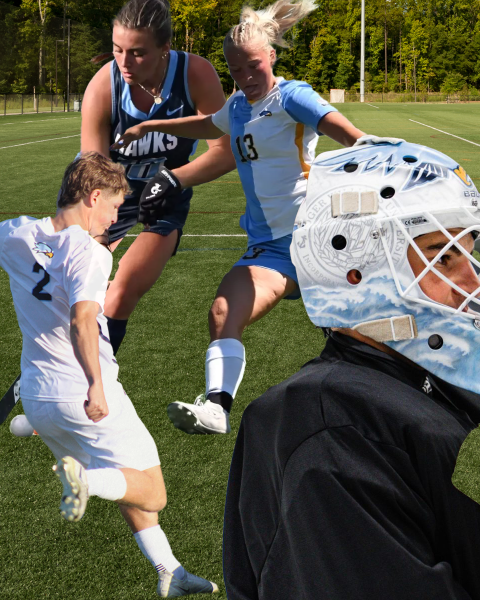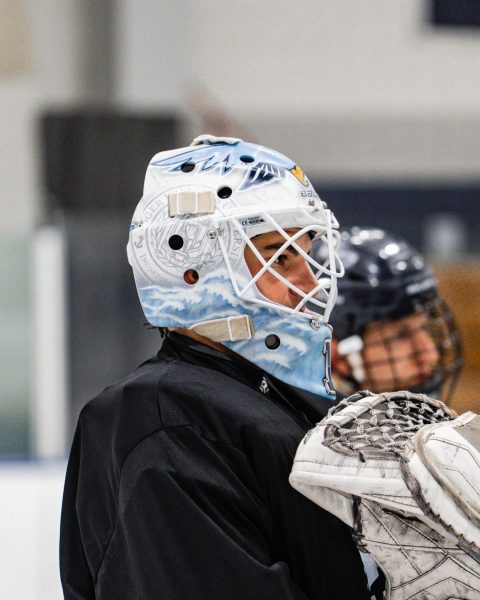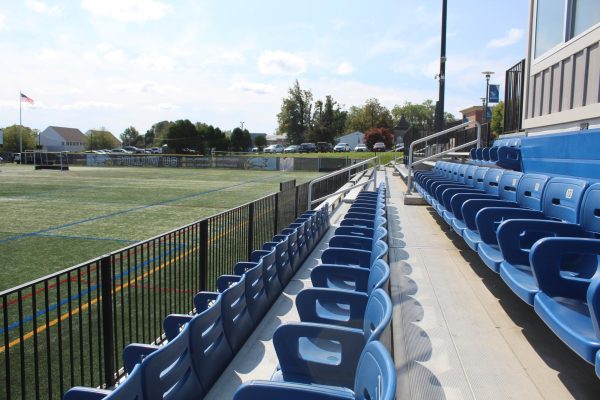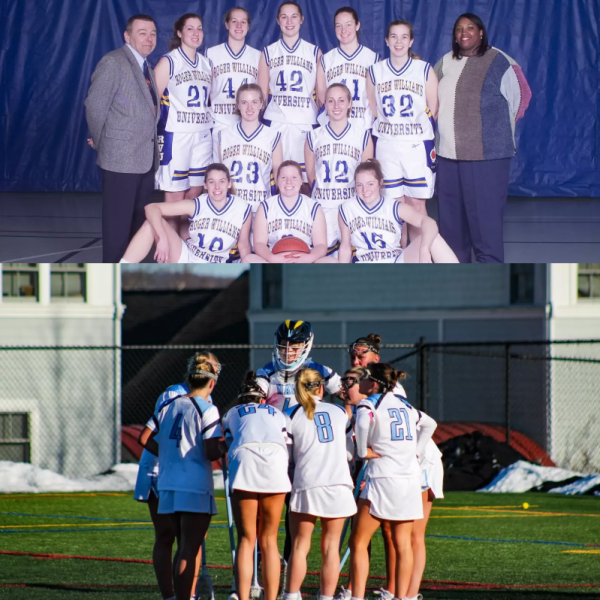Inside the athletic training room
Bags of ice and KT tape are almost always tattooed on athletes at RWU. But no one ever hears about the artist behind them.
Cory Viveiros is one of the trainers for the RWU athletics department. He has been an athletic trainer for the Hawks since he graduated from Bridgewater State University eight years ago.
Viveiros played football all throughout high school. During that time, he suffered a knee injury. At a school without an athletic training facility, Viveiros had to attend physical therapy.
“I learned what a physical therapist was, she taught me about athletic training and it peaked my interest,” Viveiros said.
According to Viveiros, he always knew he wanted to pursue a career in the medical field, but he didn’t know what.
“I love science, I love anatomy, I love medicine,” Viveiros said. “Being able to watch sports and work with athletes every day is kind of the best of both worlds.”
Viveiros had clinical experience at BSU, Brown University and RWU before working here full-time. The worst injury he witnessed was a compound fracture to a football player.
“You name it, it’s happened,” Viveiros said. “That was probably the most intense I’ve seen.”
At RWU, Viveiros has not seen anything as severe. Though, he says that when people come in with simple injuries, they prepare to treat the worst case scenario.
Every season Viveiros and his colleagues are assigned to specific teams to attend games and facilitate the athletes’ visits to the training room. His teams are volleyball, field hockey, men’s basketball, women’s lacrosse, men’s and women’s cross country and men’s and women’s track and field.
Viveiros and Kristina Keddie — the trainer in charge of men’s soccer, men’s and women’s tennis, wrestling, and baseball — agreed that the teams they see the most of are the soccer teams.
“Every season has its own team that comes in a lot,” Viveiros said. “[Soccer] has probably our most frequent visitors.”
Injuries also come in patterns. During preseason, Viveiros treats plenty of soreness and pulled muscles. The end of the season tends to bring more serious injuries.
Each season also brings a different relationship with the athletes. Men’s basketball is Viveiros’s only winter sport. This allows him to create more of a relationship with the players.
“Going into the training room everyday, we all knew we had a trainer in Cory that not only cared about our physical health, but was one of the guys,” senior basketball captain Austin Coene said. “We knew we could joke with him and he’d come back right at us. He was truly part of our basketball family.”
Basketball has always been a part of Viveiros’s life, according to him.
“The connection I have with the team is more personal. It’s hard to get that one-on-one time with other seasons,” Viveiros said. “But I enjoy all my teams, there isn’t one that I wouldn’t want to cover.”

